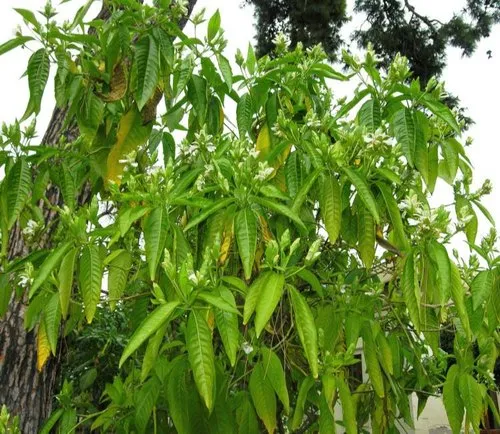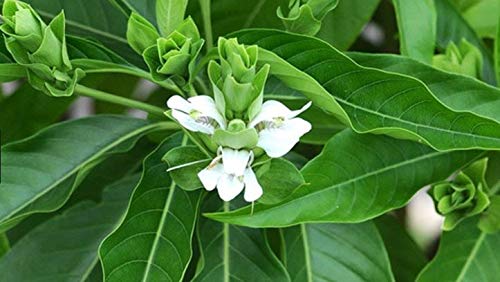Adhatoda vasica (L.) Nees
Adhatoda vasica, commonly known as Malabar Nut or Vasaka, is a perennial shrub native to the Indian subcontinent and Southeast Asia. It is widely used in traditional medicine for its numerous health benefits.
• Botanical Name: Adhatoda vasica (L.) Nees
• Synonyms: Vasica axillaris (Burm.f.) Kuntze, Adhatoda zeylanica (L.), Justicia vasica L, Justicia adhatoda, Vasica indica
• Family: Acanthaceae
• Genus: Adhatoda
• Species: vasica
________________________________________
Common Names:
• English: Malabar nut, Vasaka, Adhatoda
• Hindi: आदतोडा (Adhatoda)
• Tamil: அத்தோடா (Aththoda) Ada Thoda Ilai: ஆடாதோடை இலை
• Malayalam: ആടലോടകം (Aadalodakam)
Botanical Description:
• Plant Type: Evergreen shrub
• Height: Typically grows to a height of 1.5–2 meters, but can sometimes reach up to 3 meters under ideal conditions.
• Stem: The plant has woody, erect stems with rough bark and branches that are covered with fine hairs.
• Leaves: The leaves are simple, opposite, and lanceolate in shape. They are 10–20 cm long, with a smooth edge and a glossy green surface. The leaves have prominent veins and a leathery texture.
• Flowers: The flowers are tubular, white to pale blue, and borne in dense clusters at the tips of the branches. Each flower is about 2.5 cm long, and the inflorescence forms a terminal spike.
• Fruits: The plant produces small, ovoid capsules that contain seeds. The fruit is brown and becomes dry when mature.
• Roots: The plant has a fibrous root system, and the roots are commonly used for medicinal preparations.
• Odor: The plant, especially the leaves and flowers, has a strong, distinctive odor.
Uses of Adhatoda vasica:
1. Medicinal Uses:

